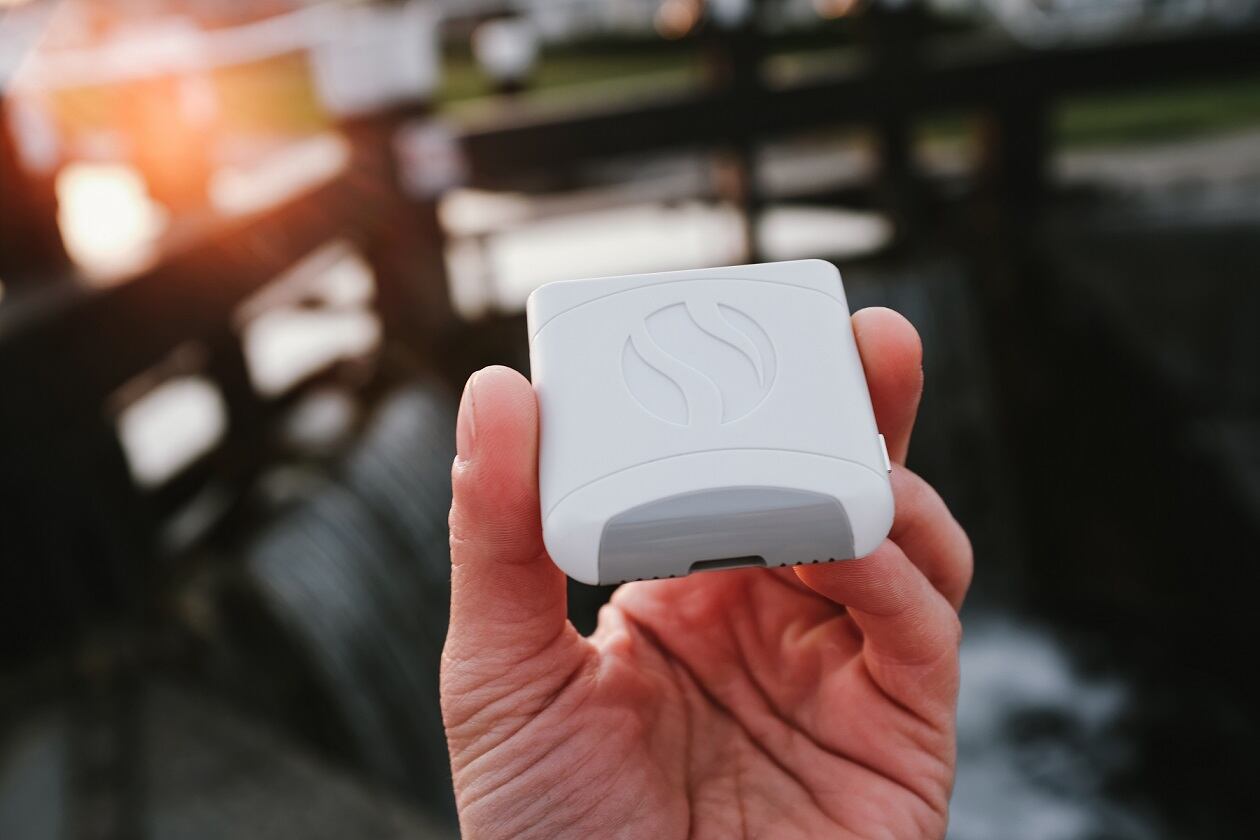Irish entrepreneur Aonghus Shortt co-founded FoodMarble, a company that developed a portable breath test device and connected app named AIRE in 2018 claiming to help people with digestive issues to pinpoint problem foods.
While undertaking his electrical engineering PhD he witnessed the impacts of digestion problems as his fiancé struggled with IBS.
He said the health system wasn’t set up to offer her the required nutritional advice to help with the debilitating digestive health problem.
“She was going to the doctor and doing lots of different diagnostic tests and being given different medications but all the medications seemed to have a lot of side effects and no real benefits.
“Fundamentally, what she was doing wasn’t working and it was having a significant impact on her life.”
He notes recent global analysis that found there is a lack of nutrition training within medical education.
“This is a really common problem that’s not really catered for by the health system. You go the GP and they do some tests to exclude serious underlying illnesses but after that it’s not really their role to discuss nutrition.”
After reading about the benefits of the Low FODMAP diet and discovering that there were clinic-based breathalysers being used to test people’s individual responses to different types of carbohydrates, his engineering mind started to question how the device could be made smaller, portable and more affordable for everyday people like his fiancé.
He explains that hydrogen breathalysers are the most widely used non-invasive method to diagnose carbohydrate malabsorption, such as lactose malabsorption.
“The actual concept of hydrogen levels in the breath indicating how your body is responding to foods is not a new concept, it’s been around for maybe 20 years.
“I wanted to take that technology, miniaturise it, make it more cost effective.”
After assembling a team, Shortt entered into a hardware accelerator programme in China called HAX and spent six months there, perfecting their mini device.
The fledgling business owners quickly realised the scale of opportunity when they put their device and app up for pre-launch sale last year and got $1 million worth of sales before the official launch in December 2018 for €169.
Since launch, they have almost doubled these sales.
Scientific backing
Without the FoodMarble team knowing, a group of researchers in New Zealand recently tested the device’s efficacy for detecting malabsorption of lactose and milk compared to the leading clinical device.
The study concluded that a significant positive correlation (p < 0.001, r > 0.8) was demonstrated between AIRE and H2 values, after both lactose and milk challenges, although 26% of the AIRE readings demonstrated the maximum score of 10.0 AU.
Supplementary opportunity
Noting what he’s witnessed in the US market, Shortt says he can see digestive health supplements becoming a massive part of European pharmacies in the years to come.
“I was in the US last week and when you go into some of the pharmacies, there’s a huge range of prebiotics, probiotics and enzymes.”
He adds that he can see ‘second generation’ probiotics and prebiotics becoming a huge trend.
However he doesn’t understand how an everyday consumer is supposed to know which of these supplements are right for them and believes this confusion is a huge opportunity for Food Marble.
The team is now working to create a second device which can help people to determine how they respond to different supplements, with the aspiration to work alongside pharmacies to get the product into consumers’ hands.
User-friendly FODMAP diet
Shortt is also working with researchers at King’s College Hospital in the UK to try to work out if there is a less restrictive way for people to take on the Low FODMAP diet.
“Currently, people are advised to cut all of the potentially high FODMAP foods out their diet immediately and then to try re-introducing foods back in a sequence.
“It seems that only some of the foods are often the cause of the problem so we are interested to see if we can make the diet less restrictive.”


